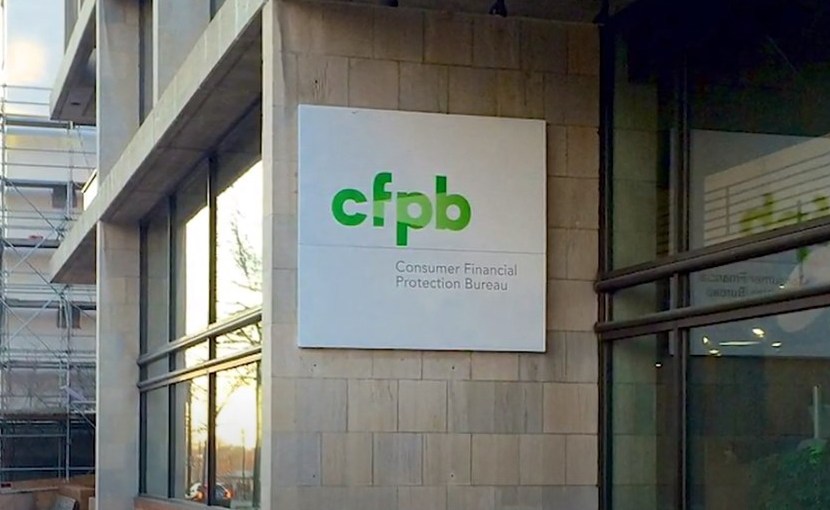
MBA Offers Recommendations to CFPB ‘Seasoned QM’ Proposal

The Mortgage Bankers Association, in an Oct. 1 letter to the Consumer Financial Protection Bureau, offered several recommendations in response to the Bureau’s request for comment on its proposed rule creating a new category of “seasoned” Qualified Mortgage loans.
The CFPB proposal would amend Regulation Z by creating a new “seasoning” path to QM status. The proposed rule would add a new path to QM safe harbor qualification through a demonstrated record of timely payments by the borrower following origination, also known as loan “seasoning.” The opportunity to obtain QM safe harbor status through the Seasoned QM category would extend to loans originated as non-QMs or rebuttable presumption QMs, as well as to loans originated as safe harbor QMs under other QM categories.
To qualify as a Seasoned QM, the originating institution must hold the loan in portfolio for at least 36 months (i.e., the “seasoning period”), with limited exceptions. During the seasoning period, the loan must have no more than two delinquencies of 30 or more days and no delinquencies of 60 or more days. Eligibility for the Seasoned QM category is limited to fixed-rate, fully amortizing loans, with no balloon payments, terms not exceeding thirty years, and total points and fees normally not exceeding 3 percent of the loan amount (with some variations for smaller loan sizes).
In comments to the CFPB, MBA President & CEO Robert Broeksmit, CMB, said MBA generally supports the restrictions on loan product features reflected in the proposal.
“Limiting eligibility for the Seasoned QM category to fixed-rate mortgages with fully amortizing payments is a reasonable restriction,” Broeksmit wrote. “The Seasoned QM concept is rooted in the idea that a borrower’s history of timely loan payments is indicative of the borrower’s ability to repay based on a lender’ knowledge of his or her circumstances and information at the time of origination. This premise is only appropriate if, in general, the payments made during the seasoning period closely resemble the payments due for the remainder of the life of the loan.”
Broeksmit noted these distinctions are not the case with adjustable-rate loan products, loans with balloon payments, or other loan products that lack fully amortizing payments. “For loans with these features, the payments made during the seasoning period may vary from those due for the remainder of the life of the loan,” he said. “Considering the possibility for changes to the loan payment amount for these products, a history of timely payments during the seasoning period would not be as strong an indicator of the borrower’s ability to repay at origination sufficient to grant that loan ‘Qualified Mortgage’ status.
MBA offered the following recommendations:
—Revise the Proposed ‘Consider and Verify’ Requirement. MBA noted while the proposal appears to conflict with the proposed regulatory text, which does not permit creditors to use the consider and verify requirements of any other QM definition. It said the Bureau should resolve the inconsistencies between the proposed regulatory text and its Official Commentary. “If the intent is to allow compliance with any other QM consider and verify standard, an approach MBA supports, then the Seasoned QM rule itself should provide for that,” MBA said.
—Extend Eligibility to Subordinate-Lien Mortgage Loans. MBA noted as proposed, eligibility for the Seasoned QM category is limited to first-lien mortgage loans. It said the decision to exclude subordinate-lien loans, while not addressed in the Bureau’s proposal, is inconsistent with the statutory framework articulated by Congress in the Dodd-Frank Act amendments to TILA. “The arguments in favor of creating a QM category based on loan seasoning for first-lien loans—e.g., expanded access to credit, encouraging innovation, etc.—justify extending the opportunity to achieve QM safe harbor status through loan seasoning to subordinate-lien loans,” MBA said.
—Broaden the “Held in Portfolio” Requirement. MBA said Bureau could—and should—allow Seasoned QM eligibility for non-QM loans or rebuttable presumption QM loans transferred to those institutions that hold them in portfolio for the requisite 36-month seasoning period. “Allowing Seasoned QM eligibility for such transfers would increase access to credit by expanding the universe of institutions that could originate sustainable loans for sale to other institutions that hold these loans in portfolio,” MBA said.
—Expand the Involuntary Transfers Exception to the Portfolio Retention Requirement. MBA said it supports the proposed exception for such transfers and encourages the Bureau to expand exception so as to allow transfers under similar, involuntary circumstances.
—Extend Eligibility to Loans Originated Prior to the Effective Date. As proposed, the Seasoned QM rule would not apply to loans originated before its effective date. While MBA agrees that rules generally should not operate retroactively, an exception is warranted in this case.
—Adopt the TRID Definition for Application Date. MBA said while it supports the proposal to use application date to determine coverage under both proposed rules, it is crucial that the Bureau clarify how application date will be determined. To this end, MBA recommends that the Bureau use the definition found in the TILA-RESPA Integrated Disclosure Rule. “Using the TRID definition will facilitate compliance and minimize implementation burden given that the TRID application date is recorded and maintained by creditors,” the letter said.
